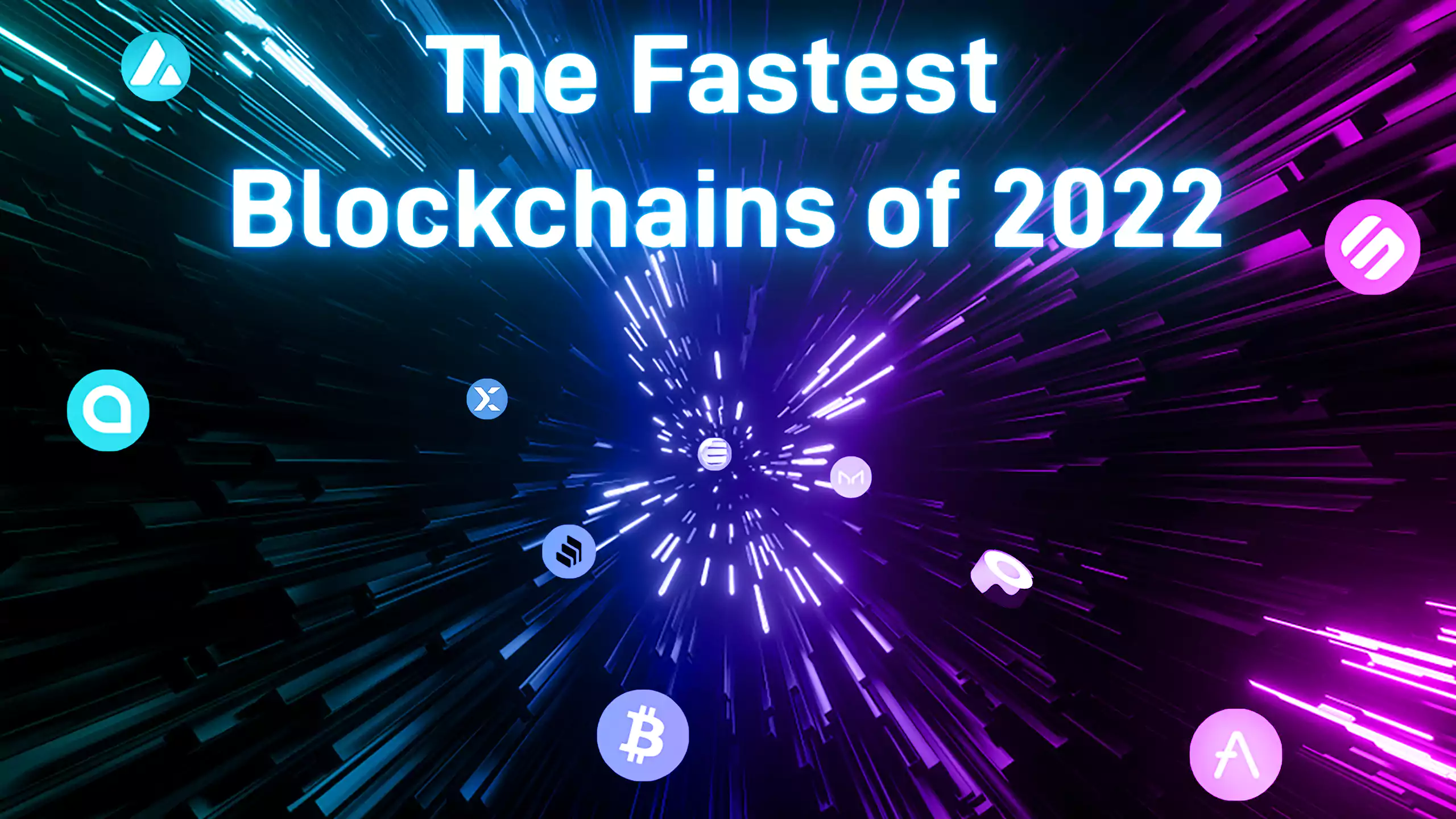The growth in the popularity of blockchain-powered cryptocurrencies like Bitcoin and Ethereum has led to many innovations. Most of this development is in the area of efficiency. One of the most prominent signs of the efficiency of a cryptocurrency is how fast a blockchain can run a transaction.
However, as more cryptocurrencies emerge, speed becomes one of the critical points of marketing. Many cryptocurrencies try to market themselves as the fastest cryptocurrencies.
Blockchains such as Ethereum became popular due to their speed over the earlier blockchains such as Bitcoin. The efficiency of these cryptocurrencies gets better by the day. But the question remains, why does the speed of transaction matter?
Why is Fast Transaction Speed Important?
One of the improvements that cryptocurrencies seem to offer over traditional money transfers and transactions is efficiency. However, even though they promise better efficiency, the transaction load of cryptocurrencies gets higher speed drops.
This speed is crucial because it helps the efficiency of a transaction. Bitcoin runs seven transactions per second, which means many transactions are queued, waiting to be confirmed. However, Ethereum, on the other hand, runs 30 transactions per second. This offers Ethereum blockchain more efficiency than Bitcoin.
Since the higher the transaction speed, the easier it is to transfer from one party to another, it can also affect the transaction fees. The factor here is that the higher the transactions queued for confirmation, the chances that the transaction fees will get higher. One could then ask whether Ethereum is the fastest cryptocurrency.
Is Ethereum the Fastest Cryptocurrency?
Ethereum is not the fastest cryptocurrency anymore. It is a distributed and open-sourced blockchain. It is powered by the principal native cryptocurrency called Ether (ETH). It is based on the concept of smart contracts, and it does not compare favorable proof of work systems that are faster than that of Bitcoin.
At the point of its development, it was marketed as the quickest cryptocurrency because it has more transaction speed than Bitcoin. However, it is no longer the fastest cryptocurrency. This is because several cryptocurrencies perform faster than the 36 transactions that Ethereum performs every second.
Then what is the fastest cryptocurrency, and where does Ethereum rank among them?
Ethereum (ETH)
Ethereum is one of the fastest blockchains, even though at just 30 transactions, it does not compare favorably to newer cryptocurrencies.
Ethereum is a cryptocurrency based on Proof of Work which means that transactions have to be created by showing proof of work being done. Here, Proof of Work allows decentralized Ethereum to a consensus on the order of transactions and account balance.
Proof of Work is a slow process, and currently, there is a planned upgrade that is being done on the Ethereum network, which will move it to Proof of Stake, making it much faster than it is now.
Cardano (ADA)
Cardano is a cryptocurrency that is open-sourced and decentralized and works with the Proof of Stake model. Cardano is one of the fastest cryptocurrencies and completes 250 transactions per second.
It is the largest blockchain using the Proof of Stake. Cardano native cryptocurrency is known as ADA, which exists on the settlement layer and keeps track of transactions similar to Bitcoin. Cardano implemented decentralized finance (Defi), smart contract capabilities, decentralized applications (DApps) in September 2021).
Unlike most cryptocurrencies, Cardano has no whitepaper, but it works with a design principle that seeks to improve the blockchain.
RIPPLES (XP)
Ripples is a settlement system that runs on real-time, currency, and remittance exchange. Ripples are one of the earliest blockchains and have a feature that does not use mining but uses a consensus mechanism from bank servers to confirm transactions. Ripples are very similar to the SWIFT system used for first currencies transfers across borders.
Ripples are one of the fastest blockchains and complete 1500 transactions per second. It can conduct more transactions cheaply and more efficiently.
The cryptocurrency native to the blockchain is XRP. XRP acts as a bridge and does not discriminate between fiat and cryptocurrency, making it easy for exchanges to happen between currencies.
TRON (TRX)
Tron is a decentralized public blockchain with a smart contract. It has a native called Tronix (TRX). Founded in 2017, Tron is one of the fastest blockchains that completes 2000 transactions per second.
One of the essential features of Tron is that it uses a Proof of Stake technology and has capabilities such as smart contracts, Decentralized Applications, and tokens. However, most of its technology is borrowed and not developed natively. This is strong criticism, but it has a fast transaction rate.
SOLANA (SOL)
Solana is one of the fastest blockchains available. It is designed for smart contracts and to host scalable and decentralized applications. Solana uses a protocol called Proof of History for verifying orders and transactions. It is used for trustless transaction encoding into ledgers using time as proof.
This gives it a faster ability to complete transactions than most cryptocurrencies, and it completes 6500 transactions per second. It uses Proof of Stake in its blockchain. Proof of Stake allows the validators to confirm transactions while the Proof of History timestamp transactions and makes it faster.
Due to the technology and the speed of transaction, the transaction fees for Solana is meager compared to that of other cryptocurrencies.
Conclusion
Blockchain technology has been evolving, and different blockchains are beginning to adopt better technology models that offer them faster transaction speed. More cryptocurrencies are coming out, aiming to complete hundreds of thousands of transactions every second.
The list we did above is the major ones and how much speed they have. If you are interested in cryptocurrencies, getting to know some information like transactions speed is essential, which is an excellent place to start.






